© 2014-


Radio Veronica - 1970’s History (5)
That scheme came to a dramatic climax during the evening of 15th May 1971 when the RNI ship, Mebo II, was fire bombed. Two days later police arrested Norbert Jurgens, General Manager of Radio Veronica in connection with the attack. The arrest surprised and shocked Holland -
Although Radio Veronica issued a statement denying that they had anything to do with the attack on the Mebo II, in a television interview the following evening one of Radio Veronica's directors, Bull Verweij, admitted paying Jurgens to have the Mebo II brought into port, but he denied responsibility for the violent attack which had taken place. Following his television appearance Bul Verweij was arrested by police and charged with conspiracy in planning the attack. 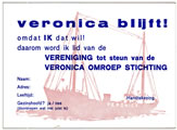
During the sum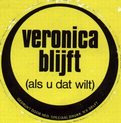 mer of 1971, after the Mebo II bomb attack, Radio Veronica, in a damage limitation exercise and in a bid to prove its continued popularity to a Government now actively considering legislation against offshore broadcasters, launched a campaign," Veronica blijft als u dat wilt" (Veronica stays if you wish). More than two million listeners registered their support for the station by returning signed postcards and in September 1971 the station launched its own magazine -
mer of 1971, after the Mebo II bomb attack, Radio Veronica, in a damage limitation exercise and in a bid to prove its continued popularity to a Government now actively considering legislation against offshore broadcasters, launched a campaign," Veronica blijft als u dat wilt" (Veronica stays if you wish). More than two million listeners registered their support for the station by returning signed postcards and in September 1971 the station launched its own magazine -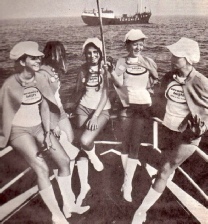 news and information about the station and its campaign to stay on the air, as well as general entertainment and pop music news.
news and information about the station and its campaign to stay on the air, as well as general entertainment and pop music news.
Court hearings against Bull Verweij, Norbert Jurgens and the three divers who had bombed the Mebo II were concluded on 21st September 1971 when all five men were found guilty and each was sentenced to one year in prison.
1972
On 29th February 1972 Radio Veronica programmed a special Beatles Day – 20 hours of nothing but Beatles records from 6.00am-
In July 1972 Dirk Verweij, who had returned to the management of Radio Veronica just 12 months earlier, died suddenly while on a business trip to Italy.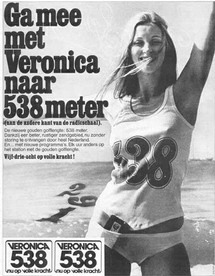
After many months of complaints about poor evening and nightime reception on 192m Radio Veronica finally changed wavelength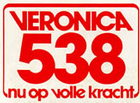 on 30th September 1972. The final Radio Veronica programme on 192m, consisting of a brief history of the station, was broadcast from 12-
on 30th September 1972. The final Radio Veronica programme on 192m, consisting of a brief history of the station, was broadcast from 12-
The improved reception on 538m resulted in an increase in audience figures for Radio Veronica. A listenership survey in December 1972 showed that the station’s audience had increased from 350,000 to 510,000.
1973
Adverse weather conditions caused problems for all three radio ships off the coast of Holland on 2nd April 1973. A gale, which had been blowing all day, steadily increased in intensity until it reached hurricane force, and at 8.45pm Scheveningen Radio received a distress message from the Radio Veronica ship, Norderney saying that she had broken from her moorings and was drifting towards land.
The lifeboat Bernard van Leer was launched and shortly before 10.00pm it took four men off the Norderney, then stood by to provide further assistance if required. Half an hour later transmissions from Radio Veronica stopped suddenly, with a Dutch technician broadcasting a final message of reassurance to friends and relatives ashore. The six remaining crew members were then taken off the radio ship by the 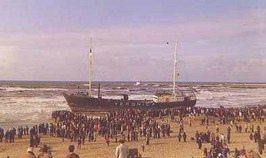 lifeboat.
lifeboat.
Within an hour the abandoned Norderney, battered by wind and waves ran aground 50 yards from the entrance to Scheveningen Harbour. Meanwhile, the lifeboat with the rescued Radio Veronica crew on board was itself still at sea, unable to enter harbour until the following morning due to the severity of the storm.

Norderney after running aground, April 1973

Click on picture to enlarge
Video showing the Norderney during the storm in April 1973
History
Key Dates
Ships and Location
Technical
Staff
Programmes






Video of a visit to Radio Veronica in April 1972
Treasure Chest

Veronica Blijft campaign publicity photograph

Back to Netherlands/Belgium Gallery


Back to Radio Veronica
